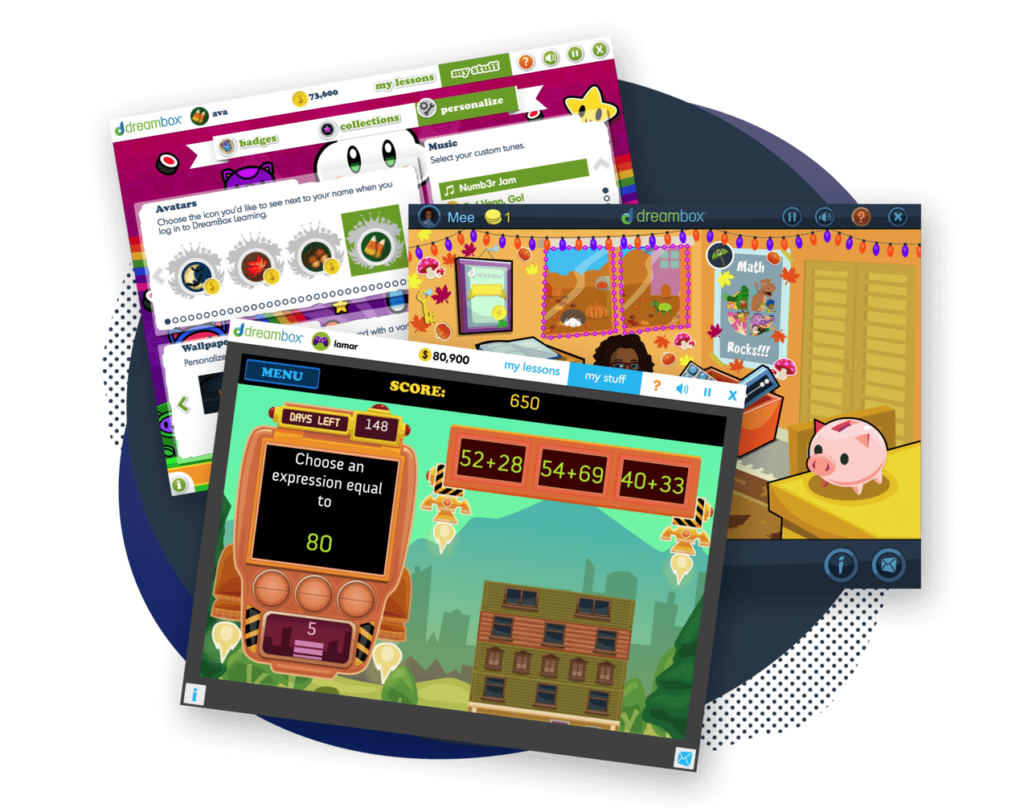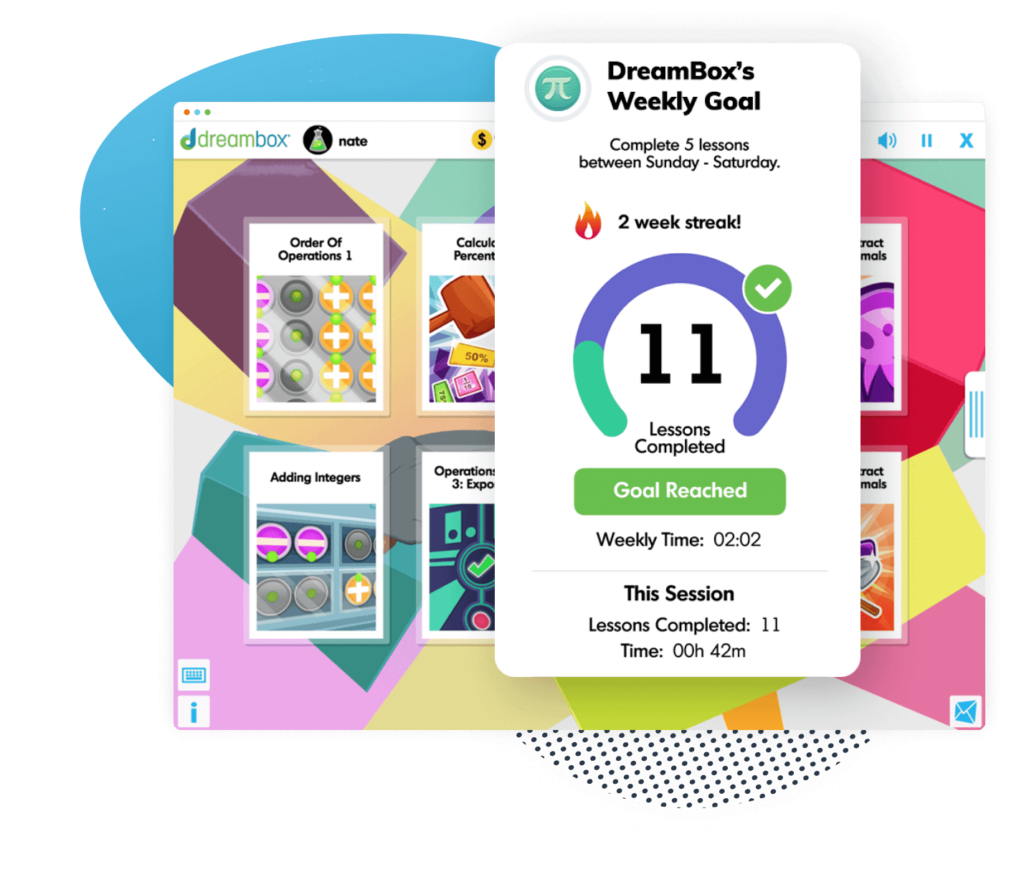Math enrichment activities for elementary students

Author
Katie Wickliff
Published:
Oct 2024
Key takeaways
- • Math enrichment is an essential part of growing as a mathematician.
- • Enrichment should deepen and enhance learning
- • Math enrichment activities at home can take many different forms
If you’re a parent or caregiver of a school-aged child, you’ve likely heard the term “math enrichment.” Perhaps your child’s teacher has mentioned doing math enrichment with specific students or the whole class.
But exactly what is math enrichment, anyway? Would your child benefit from enrichment? How do you facilitate math enrichment activities at home?
This article will answer those questions and provide a comprehensive overview of math enrichment for elementary-aged children. We’ll talk about what math enrichment is (and what it is not!), discuss the components of quality math enrichment, and highlight the types of students who would benefit from math enrichment activities. We’ll also give several examples of enrichment activities you can easily do at home. Ready? Let’s get started!
What is Math Enrichment?
Obviously, skill-focused lessons are an important part of any math curriculum–an essential part of helping students develop as mathematicians. So where does math enrichment fit in?
If enrichment means to make something more meaningful, substantial, and rewarding, then math enrichment should deepen learning. Quality enrichment expands knowledge by guiding students to think more deeply and flexibly, fostering critical thinking skills. Math enrichment should be:
- Appropriately difficult: not so easy that they fly through it without thinking, but not so difficult that they become overwhelmed and discouraged.
- Diverse: a wide range of activities that will keep your child interested and motivated.
- Critical in nature: complex activities that require creative, flexible thinking.
What Math Enrichment is NOT
To gain a better understanding of what math enrichment means, it’s important to discuss what math enrichment is not. Math enrichment is not:
- Giving more of the same work. Simply giving your child another math fact worksheet to do at home doesn’t help enrich their knowledge, it simply gives them more practice.
- Getting “ahead” in the textbook. While some students may welcome this accelerated work, moving at a faster pace is not enrichment.
- Offering no support. While some enrichment activities are designed to be completed independently, you should be on hand to engage with and support your learner.
Who Benefits from Math Enrichment
I’m the mother of two school-aged children. One of my kids is what teachers call a “fast finisher”: he completes math assignments quickly and accurately. He also tends to grasp new math concepts easily and can demonstrate his knowledge on homework and tests.
In contrast, my other child doesn’t find math a breeze. While performing at grade level, she takes a lot longer to finish her assignments and often needs extra support from her teacher individually or in small groups.
Of the two, which child would benefit from math enrichment? The answer? Both of them!
The most effective enrichment is open-ended, rewarding depth over speed. This means that any child, no matter their starting point, will benefit from enrichment activities that help develop problem-solving abilities and encourage exploration and creative thinking.
Table of contents
Practice your math skills with DreamBox Math!
Turn math into playtime with DreamBox Math
DREAMBOX MATH
Get started for FREE today!

Math Enrichment Activities
Doing math enrichment at home is a great way to foster a love of numbers and connect with your child. While math enrichment activities can vary greatly depending on your individual child, here are some ideas I recommend as a math tutor to get you started:
1. Logic-Based Puzzles
Puzzles like Sudoku, Magic Square, or KenKen can help strengthen critical thinking skills. If you want to buy physical puzzles, some of our family favorites include Dog Pile, Smart IQ Puzzler, and Mental Blox Jr.
2. Online Games and Math Apps
Check out DreamBox’s award-winning math app. This personalized program is full of math enrichment games that support your child’s math journey.
3. Interesting Math Books
Sharing books with your child is a great way to bring math concepts to life. A few illustrated picture books include “Blockhead: The Life of Fibonacci” by Joseph D’Agnesc, “The Boy Who Loved Math” by Deborah Heiligman, or “Ten on a Twig” by Lo Cole.
4. Webquests
These are inquiry-based projects that require students to research and think deeply about a real-world math problems, and can be easily completed using a home or library computer. You can find many sample Webquest projects online or make up your own!
5. “Real Life” Word Problems
For example, If your child wants to save up to buy a toy with their allowance money, allow them to take the lead in figuring out how much they’ll need to save and approximately how long it will take. Write down the problem with them and brainstorm several ways to reach their goal.
6. LEGO Enrichment
Got a LEGO lover? These building bricks are the perfect open-ended tool for math enrichment at home. Children of all ages can engage in building challenges that reinforce Geometry concepts and encourage higher-level thinking. The possibilities are truly endless
7. Math in the Kitchen
Cooking with your child is an enriching (albeit messy) experience that provides concrete examples of using numbers in real life. Let your child choose the recipe and lead the measuring process. Being able to actually see that a ½ cup is larger than a ¼ cup strengthens their understanding of fractions.
8. Math in Nature Scavenger Hunt
Show your child that math can even be found in nature— from identifying simple shapes to noticing how much of nature follows the Fibonacci sequence.

The math program that drives results
Get started today!
DreamBox adapts to your child’s level and learning needs, ensuring they are appropriately challenged and get confidence-building wins.
FAQs about math games
Math enrichment is important because, in addition to developing math skills, enrichment encourages creative and critical thinking.
Math enrichment activities go beyond memorizing facts and computing problems. Enrichment activities allow students to achieve more depth and understanding of a concept.
Take at home math practice to the next level
Empowering parents and educators to make math practice more impactful. Plus, your kids will love it.


About the Author
Katie Wickliff
Katie holds a master’s degree in Education, has over 15 years of education experience as a primary classroom teacher, and is Orton-Gillingham certified tutor. Most importantly, Katie is the mother of two primary school students, ages 8 and 11. She is passionate about maths education and firmly believes that the right tools and support will help every student reach their full potential.